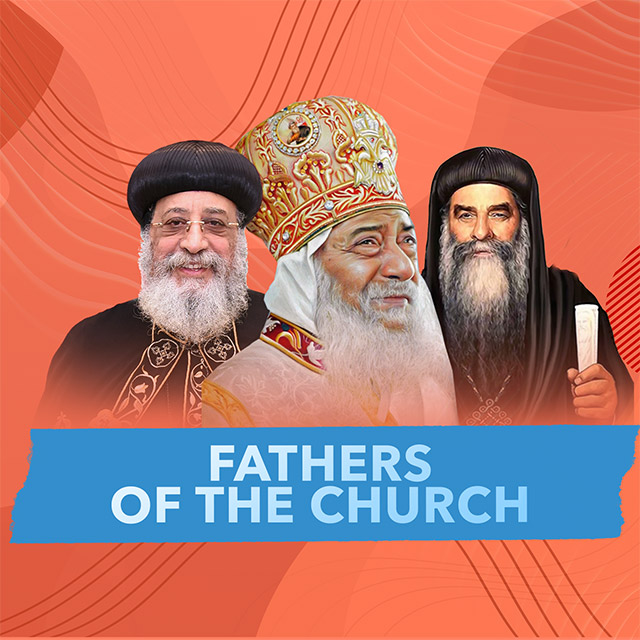The promise Jesus made to His disciples was fulfilled after His resurrection. From His first appearance to them on the day of His resurrection, He granted them the Holy Spirit, as recorded in the Gospel of John:
“Jesus said to them again, ‘Peace be with you. As the Father has sent Me, even so I am sending you.’ And when He had said this, He breathed on them and said to them, ‘Receive the Holy Spirit. If you forgive the sins of any, they are forgiven them; if you withhold forgiveness from any, it is withheld’” (John 20:21–22).
The authority to forgive sins is a divine authority. Jesus exercised this authority during His life (see, for example, the healing of the paralytic in Capernaum: Matthew 9:1–8), because the Spirit of the Lord was upon Him. Now, just as the Father sent Him and filled Him with the Spirit, He sends His disciples and grants them the Holy Spirit — the power of the Father and His divine authority to give people divine life through the forgiveness of sins and reconciliation with God.
This is the baptism with the Holy Spirit and fire that John the Baptist spoke of when he announced the coming of Christ:
“I baptize you with water for repentance, but He who is coming after me… He will baptize you with the Holy Spirit and fire” (Matthew 3:11).
Fire here is a symbol of purification from sin. This is also the baptism with the Holy Spirit that Jesus promised His disciples before His ascension:
“Do not depart from Jerusalem, but wait for the promise of the Father, which you heard from Me. For John baptized with water, but you will be baptized with the Holy Spirit not many days from now” (Acts 1:4–5).
Luke narrates in Acts chapter 2 how this baptism with the Holy Spirit and fire was fulfilled:
“When the day of Pentecost arrived, they were all together in one place. And suddenly there came from heaven a sound like a mighty rushing wind, and it filled the entire house where they were sitting. And divided tongues as of fire appeared to them and rested on each one of them. And they were all filled with the Holy Spirit and began to speak in other tongues as the Spirit gave them utterance” (Acts 2:1–4).
Peter then explains to the crowd that this event was the fulfillment of Old Testament prophecy:
“This is what was uttered through the prophet Joel:
‘And in the last days it shall be, God declares,
that I will pour out My Spirit on all flesh,
and your sons and your daughters shall prophesy,
and your young men shall see visions,
and your old men shall dream dreams.
Even on My male servants and female servants
in those days I will pour out My Spirit, and they shall prophesy…’
This Jesus God raised up, and of that we all are witnesses.
Being therefore exalted at the right hand of God, and having received from the Father the promise of the Holy Spirit, He has poured out this that you yourselves are seeing and hearing” (Acts 2:16–18, 32–33).
Then Peter calls his listeners to repentance and baptism to receive the gift of the Holy Spirit:
“Repent and be baptized every one of you in the name of Jesus Christ for the forgiveness of your sins, and you will receive the gift of the Holy Spirit. For the promise is for you and for your children and for all who are far off, everyone whom the Lord our God calls to Himself” (Acts 2:38–39).
What does the descent of the Holy Spirit on the disciples mean?
Before receiving the Holy Spirit, the disciples were afraid and hiding, as John tells us, “with the doors locked for fear of the Jews” (John 20:19). But after the Holy Spirit came upon them, they began to proclaim Christ boldly and “speak in other tongues,” meaning they preached Christ to all nations in every language. Joel, whose prophecy Peter quoted, said: “I will pour out My Spirit on all flesh… they shall prophesy,” which here means speaking in the name of God and bearing witness to Him.
The Holy Spirit that descended upon the disciples gave them the ability to speak in God’s name and testify to Christ. They confirmed to the people that anyone who repents and is baptized in Jesus’ name will receive the gift of the Holy Spirit — that is, God’s Spirit will fill them so they may speak and act not by human wisdom or power, but by the Spirit of God working in them. The apostles, now full of the Spirit, also performed signs and wonders among the people:
“So that they even carried out the sick into the streets and laid them on cots and mats, that as Peter came by at least his shadow might fall on some of them. The people also gathered from the towns around Jerusalem, bringing the sick and those afflicted with unclean spirits, and they were all healed” (Acts 5:15–16).
These miracles are special gifts given by the Holy Spirit as He wills, as Paul says:
“To each is given the manifestation of the Spirit for the common good. To one is given through the Spirit the utterance of wisdom, to another the utterance of knowledge… to another faith… to another gifts of healing… to another the working of miracles, to another prophecy… to another various kinds of tongues, to another the interpretation of tongues. All these are empowered by one and the same Spirit, who apportions to each one individually as He wills” (1 Corinthians 12:7–11).
The work of the Holy Spirit extends to every aspect of Christian life.
The Book of Acts describes the life of the early Church as entirely inspired by the Spirit: the devotion to the apostles’ teaching, fellowship, prayer, the breaking of bread (Eucharist), and the sharing of goods were all works of the Spirit:
“They devoted themselves to the apostles’ teaching and the fellowship, to the breaking of bread and the prayers… And awe came upon every soul, and many wonders and signs were being done through the apostles. And all who believed were together and had all things in common… Day by day, attending the temple together and breaking bread in their homes, they received their food with glad and generous hearts, praising God and having favor with all the people. And the Lord added to their number day by day those who were being saved” (Acts 2:42–47).
⸻
b) The Holy Spirit Builds the Church
Thus, the Holy Spirit builds the Church through the preaching of the apostles and the joining of believers. The Holy Spirit has accompanied the Church from its very beginning and through every stage of its growth. That is why the Book of Acts, which recounts the Church’s origin and expansion, is often called “the Gospel of the Holy Spirit.” It is the power of God that drives the Church to the “ends of the earth,” according to Jesus’ words to His disciples:
“You will receive power when the Holy Spirit has come upon you, and you will be My witnesses in Jerusalem and in all Judea and Samaria, and to the ends of the earth” (Acts 1:8).
The Holy Spirit guides the apostles in their mission. It was the Spirit who told Philip to approach the chariot of the Ethiopian eunuch (Acts 8:29). It was the Spirit who told Peter to go without hesitation to the house of Cornelius the centurion, opening the Church to the Gentiles (Acts 10:19–20). The Spirit also chose Paul and Barnabas for missionary work (Acts 13:2–4). The apostles were attentive to the inspirations of the Spirit. Paul and Silas were prevented by the Spirit from preaching in Asia and Bithynia (Acts 16:6–7).
The apostles also discerned the Spirit’s will in their decisions, such as at the Council of Jerusalem, where they declared:
“It has seemed good to the Holy Spirit and to us…” (Acts 15:28)
Sometimes Acts calls the Holy Spirit “the Spirit of Jesus” (Acts 16:7), because the Holy Spirit continues the presence and work of Jesus after His resurrection — preaching the Word, calling to repentance, and performing healings. The apostles taught in Jesus’ name (Acts 4:18), called people to repentance and faith (Acts 2:38; 6:7), and worked signs and wonders in Jesus’ name (Acts 3:6; 4:10, 30).
The Holy Spirit works not only in the apostles but also in the believers, uniting them — from different backgrounds — into one body: the Body of Christ. As Paul writes:
“For in one Spirit we were all baptized into one body — Jews or Greeks, slaves or free — and all were made to drink of one Spirit” (1 Corinthians 12:13).
The Church is united closely with Christ. Believers are justified and sanctified in Christ and in the Spirit (1 Corinthians 1:2, 30; 2 Corinthians 5:21), and also in the Holy Spirit (Romans 14:17). In Christ and in the Spirit, they receive peace and joy (Philippians 3:1; 4:7; Romans 14:17). The love of God has been poured into their hearts in Christ (Romans 8:39) and through the Holy Spirit (Colossians 1:8). Paul affirms:
“Christ is in you” (Romans 8:10), and “the Spirit of God dwells in you” (Romans 8:9).
The Christian is a child of God through Christ and the Spirit (Galatians 4:4–7).
The Holy Spirit makes us children of God:
“You have received the Spirit of adoption as sons, by whom we cry, ‘Abba! Father!’ The Spirit Himself bears witness with our spirit that we are children of God” (Romans 8:15–16).
“Because you are sons, God has sent the Spirit of His Son into our hearts, crying, ‘Abba! Father!’ So you are no longer a slave but a son, and if a son, then an heir through God” (Galatians 4:6–7).
“For all who are led by the Spirit of God are sons of God” (Romans 8:14).
Christians are children of God, temples of the Holy Spirit, and members of the Body of Christ. The Spirit dwells within them and unites them to Christ. Paul says:
“Do you not know that you are God’s temple and that God’s Spirit dwells in you?” (1 Corinthians 3:16),
“Do you not know that your body is a temple of the Holy Spirit within you, whom you have from God?” (1 Corinthians 6:19).
And of Christ: “Do you not know that your bodies are members of Christ?” (1 Corinthians 6:15).
The Church is not the body of the Holy Spirit, but the Body of Christ. The Holy Spirit is the Spirit of God who dwells in believers to unite them to Christ and bring them into the relationship Christ has with the Father.
The Holy Spirit is the creative power of God — the love poured into human hearts that binds people to one another and to God. The Spirit is God’s relationship with humanity and the power that unites humanity to God. Through the Holy Spirit, God comes out of Himself and unites Himself with humanity. In the Holy Spirit, God and humanity become one:
“By this we know that we abide in Him and He in us, because He has given us of His Spirit” (1 John 4:13).
This is the Church: the divine life that came through Christ and the Holy Spirit poured into human hearts, making them children of God, temples of the Holy Spirit, united with God and with one another — one Body of Christ.
St. Irenaeus says:
“Just as God breathed His Spirit into the body He formed, giving life to all its members, so too He gave the Spirit to the Church. This Spirit, received by the Church and poured into her, is the principle of her intimate union with Christ: He is the foundation of our faith, the ladder by which we ascend to the Father. Above all, He is the pledge and seed of incorruptibility and immortality. Where the Church is, there also is the Spirit of God; and where the Spirit of God is, there is the Church and every grace. The Spirit is truth. Whoever does not partake of the Spirit does not draw from the womb of his mother the nourishment of life, and receives nothing from the clear fountain flowing from the Body of Christ.”
(Against Heresies 3.24.1)












